Could you first introduce yourselves, and give us a rundown of your creative journey to date?
Saskia: So, as you know – considering I drive you crazy most days –I am the assistant editor of Voice. I studied BA Creative Writing and Journalism and then went on to do an MA in Publishing which is where I actually met Zainab. I’ve done quite a few things in my time, and my road here was not straight or traditional at all. I knew I wanted to work in the magazine industry since university, and I always knew I wanted to publish books too; I just didn’t think I’d be able to say I’ve done both by the age of 26. I have worked in and around publishing during that time, written for magazines like The Bookseller and discovered my passion for interviewing and hosting through my work at Voice. I’m not sure if that answered the question, but that’s all I’ve got so far. Much more to come though if I have anything to do with it.
Zainab: I'm Zainab. I started my journey as a lot of us do with a BA in English literature (and classical civilisation), envisioning myself as an author, not realising that it takes a lot more than being able to write to become one. So, to that end, I went on to do an MA in Publishing, where I met the person who would inspire me to believe I could do any creative venture I put my mind to: Saskia. She inspired me to believe in my future, helped me get my blog started and introduced me to opportunities at Aurora Publishing house, which is how we ended up writing this book together.
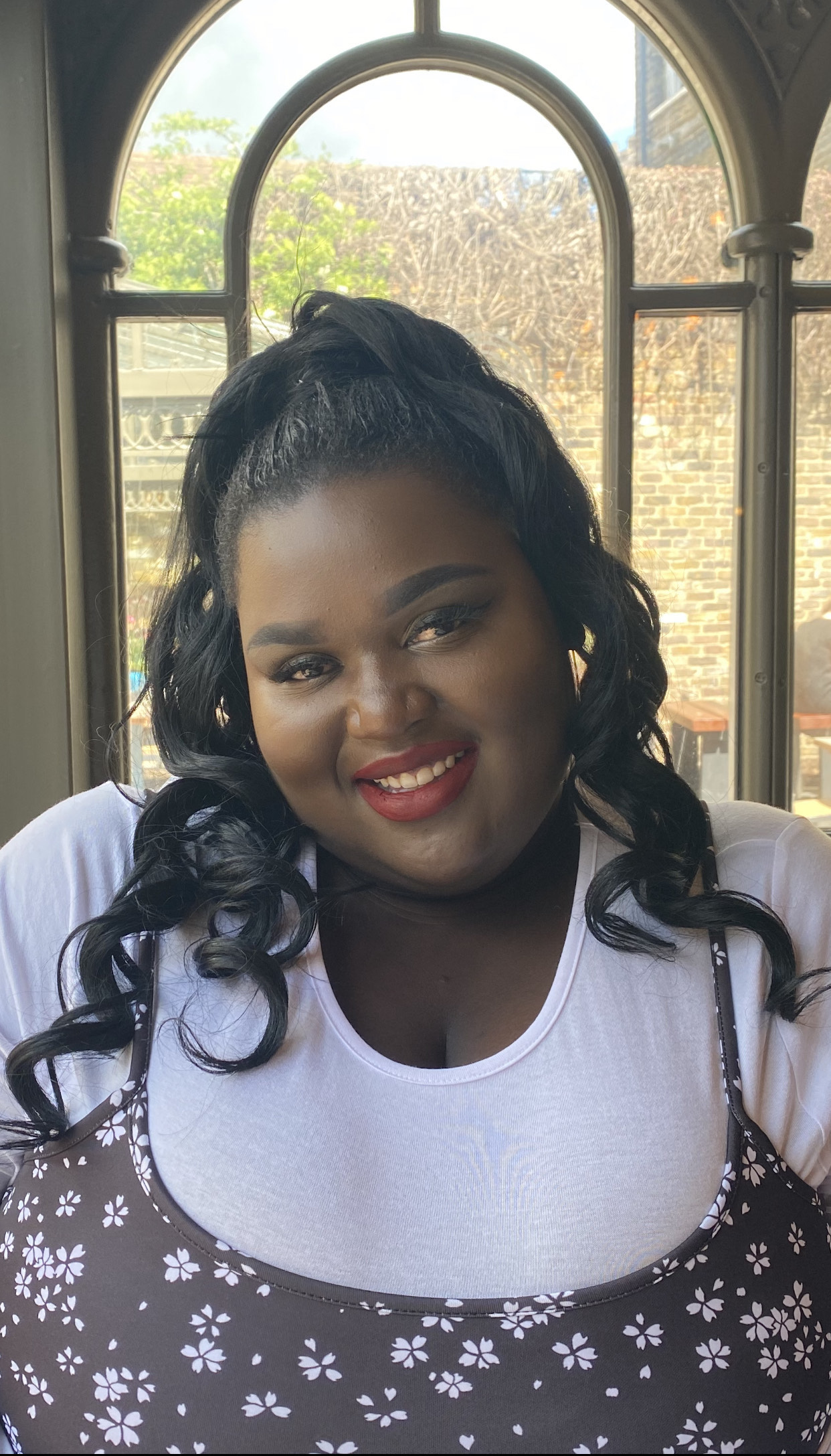 Saskia CallisteYou have recently published a new book, titled Hairvolution: Her Hair, Her Story, Our History. How does it feel to have finally launched?
Saskia CallisteYou have recently published a new book, titled Hairvolution: Her Hair, Her Story, Our History. How does it feel to have finally launched?
S: It’s pretty unbelievable. I think Zainab will agree with me that there were times we thought it would never get made – having had to push the release date back so many times, but it’s finally here, and I COULD NOT be happier with the final product. The book is beautiful, and we achieved nearly everything we set out to do.
Z: It feels amazing to have the book out there, finally. This book had so many parts to it, there were times when we felt we'd bitten off more than we could chew, but we're so thankful that it's finally out there for the world to see.
Can you tell us about the book?
S: The book was born out of the 2020 BLM protests where our publisher came to us (as we both worked there at the time) and asked us if we wanted to write a book in response to what was going on. It’s not every day a publisher comes to you, so that was pretty amazing to begin with. We thought about it and decided we wanted to add something different to the narrative, which was when we decided to base it on the plight Black women have to go through regarding their hair. There are so many politics and microaggressions that Black women have to endure that we forget the beauty and power our hair holds. This book is first and foremost a celebration of that, plus a look at our history in a time before we felt we had to conform to Western beauty ideals. We have interviewed 31 beautiful, influential Black women in the book, who each share their stories and experiences. It’s really intimate and personable, and it certainly fills a gap.
Z: The book consists of a historical overview, interviews, and poems. It explores the history and politics of afro-textured hair from pre-colonised Africa through to the present day and then presents readers with a series of interviews from amazing Black women from around the world, each telling their unique stories about their experiences growing up with Afro-textured hair.
Why did you decide that now is the time to tell this story?
S: It wasn’t all about BLM. Daily we see stories about Black women having to put up with nonsense about their hair. Whether it’s the Olympics banning large swimming caps or TV hosts comparing us to animals. These incidents happen all the time, and after people have had their say about it, people forget, and it happens again. Black women are so often left out of the conversation of race, colourism etc., and it’s not right or fair. Black women are carrying around decades of other people’s opinions on their hair and beauty, and it takes a toll on us that we felt people weren’t talking about enough. It’s not really about why now; it’s about why hasn’t this been done before.
Z: The topics in the book have always been relevant, and the stories have been needing to be told long before now. But there is a time and place for certain discussions. After the 2020 protests and the seemingly endless, highly visible incidents of racially motivated police brutality, the world felt like it was beginning to wake up. There was a lot of public discourse around the situation of Black people in the diaspora. And while a lot of that discussion was about issues like police brutality, other aspects of the Black experience were starting to be discussed, like colourism and texturism, and links were being drawn between these. And for Black women, these are some of the issues that impact us most heavily and impact the way that we are able to exist in our societies. So, it seemed that midst of all of this was the perfect time to go into one thing that all Black people around the world have in common, our hair, and allow room for Black women specifically to dwell on their own experiences; to learn, gain comfort from, and change their own narrative. 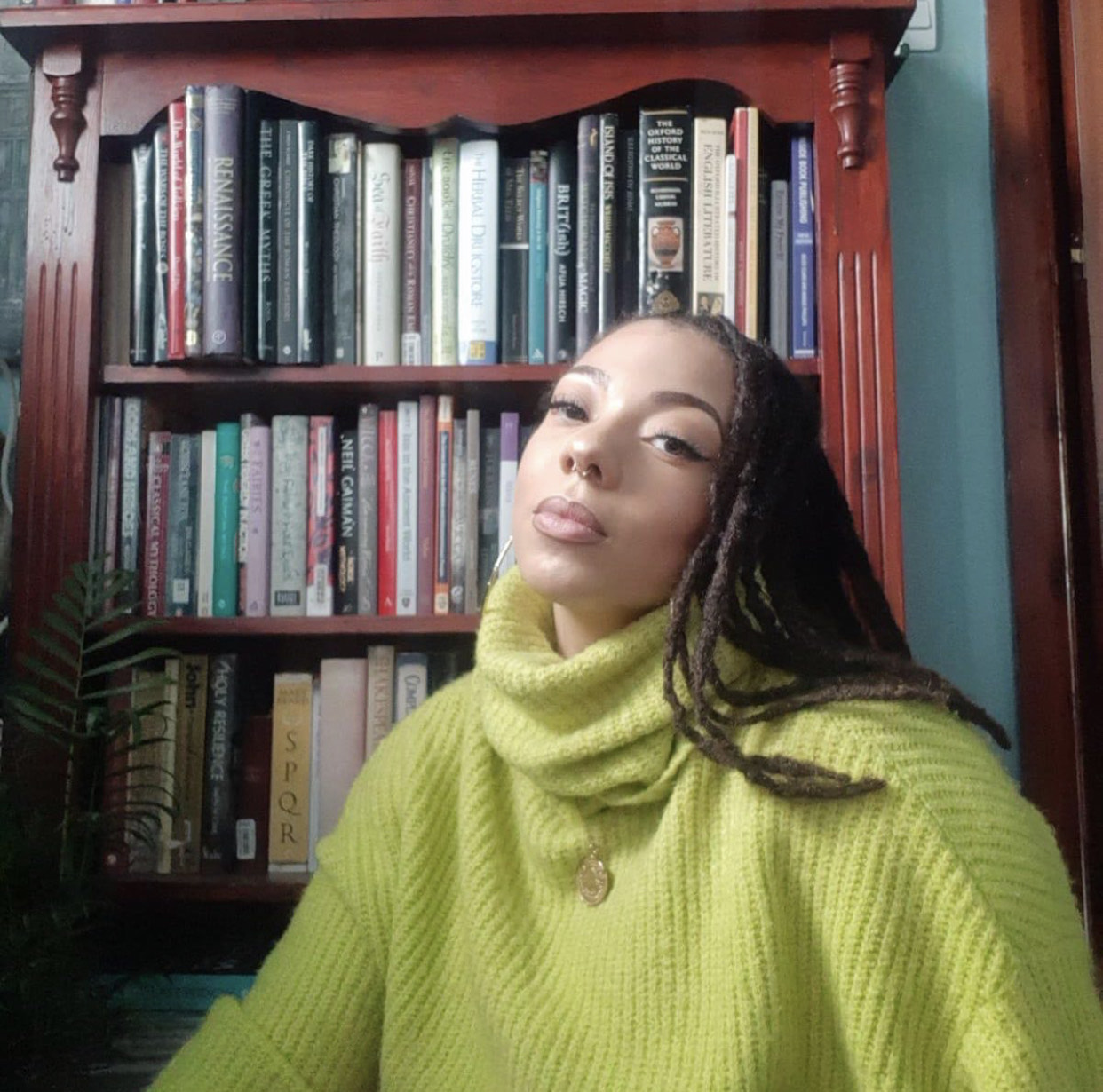 Zainab Raghdo
Zainab Raghdo
Could you walk us through the processes you went through to get Hairvolution published? What should a young person wanting to follow in your footsteps expect?
S: Oh boy. Well, the publishing process is stressful for a book like this. When you’re working with 30 plus other people to create the contents of the book, it can get a bit much. Chasing people, making sure they are happy with what has been written. I have to say we were very lucky because so many of the women we interviewed were really happy to be involved, so it made that process a little easier, but nonetheless, it’s a lot of work. I would say be prepared for a lot of rejection, a lot of work outside of normal business hours, and to be prepared to muck in wherever you can. Our publisher Cheryl Robson supported our idea from the beginning, and that’s important. Despite what happens down the road, you have to find someone who is willing to give you room to be creative and to try things your way.
You interviewed a lot of high-profile Black women for Hairvolution. What was that experience like?
S: I’ll take this question as Zainab focussed on writing the history, and I did the interviews alongside our publisher. It was actually amazing but overwhelming at the same time. Before the interviews started, it was just Zainab and I talking, to be honest. Sure, we had similar experiences, but maybe we were just a small percentage of women who had gone through such things. Although deep down I knew that wasn’t the case, I didn’t realise how much others had been impacted by some of the things discussed until I did those interviews and read the ones Cheryl did. It was such a cathartic experience. I even had a few cry with me on Zoom. It was emotional, it was intense, but it was so worth it.
Were there any common themes that cropped up amongst your interviewees?
S: Zainab is going to kill me for saying this, but the fact that we, as little Black girls, used to put trousers or cardigans on our heads and pretended it was hair. It sounds funny now when you say it, but so many other women in the book have that experience. It wasn’t something we all discussed in school; it was secret behaviour that little did we know we were all doing because clearly there was an outside force telling us that we had to have long, flowing hair to feel beautiful. It’s not quite a theme, but it definitely reiterates the need for such a book, and I am just so glad that we got to be the ones to create it.
Z: For most of the interviews (not all), there was a general sense of growth. They started from the point of disliking, being made to feel about, or not being well enough educated about, their natural hair when they were young. Gradually, often through a process of trial and error, they learned what processes and styles made them most comfortable and proud of who they were.
Was there a particular line or point that stuck with you?
S: Eva Anek’s interview, simply because I have never had a conversation with someone I barely know that just encapsulated everything I felt about the situation. Funny story actually, we both rocked up to the Zoom interview – her wearing her wig, me a ponytail – and towards the end, told each other how we only styled our hair that way for each other. This is because of the pressure to look “presentable”, something we are taught that our natural hair doesn’t convey. We promised that the next time we spoke on Zoom, we’d both have our hair in its natural state. That was a whole moment for me.
Z: For me it was the generational similarities between our experiences that really stood out. It’s a poignant part of the book that needs highlighting because it goes to show how much harder we have to work to protect the younger generations from going through the same thing.
Who is this book for, and what do you hope they’ll get out of it?
Z: This book is for young Black girls starting their hair journey, who may want to learn about their history and where they and others like them came from. It's for young Black women who may be in the middle of their journey and may need some reassurance that there isn't only one look for black women, and beauty and pride comes in all forms. That experimentation is ok; being you, regardless of what anyone else has to say, is ok, and they are not alone in their journey. This book is for the older generation of Black women, our mothers, aunts and grandmothers, who may have felt like they had limited options. It exists to remind them that nothing was their fault, that they were never alone in their feelings, that there is a whole sisterhood of black women behind them who had the same fears, obstacles and thoughts as them. It's a reminder everything is going to work out for the best.
And lastly, it's for anyone who wants to learn about the history of a group of people whose existence has been so integral to human progression and culture.
S: It’s really a love letter to them in some ways, letting them know that everything they felt was valid, everything they went through to survive in a Western world is understandable, and they did what they could with the tools they had. All I want out of this book is for it to do exactly what Zainab and I intended it to do, which is get through to those who don’t understand, celebrate Black women and educate everyone.
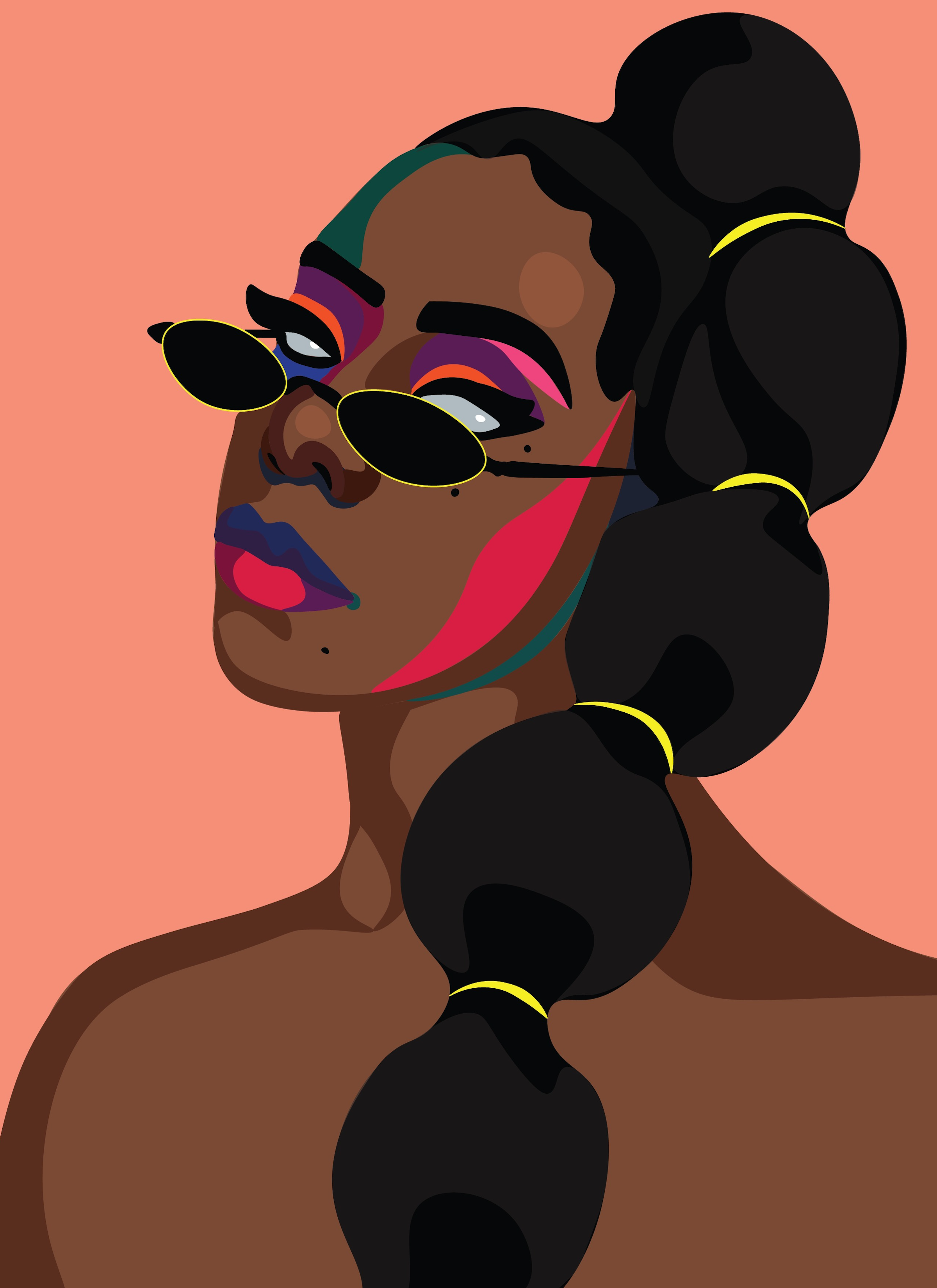
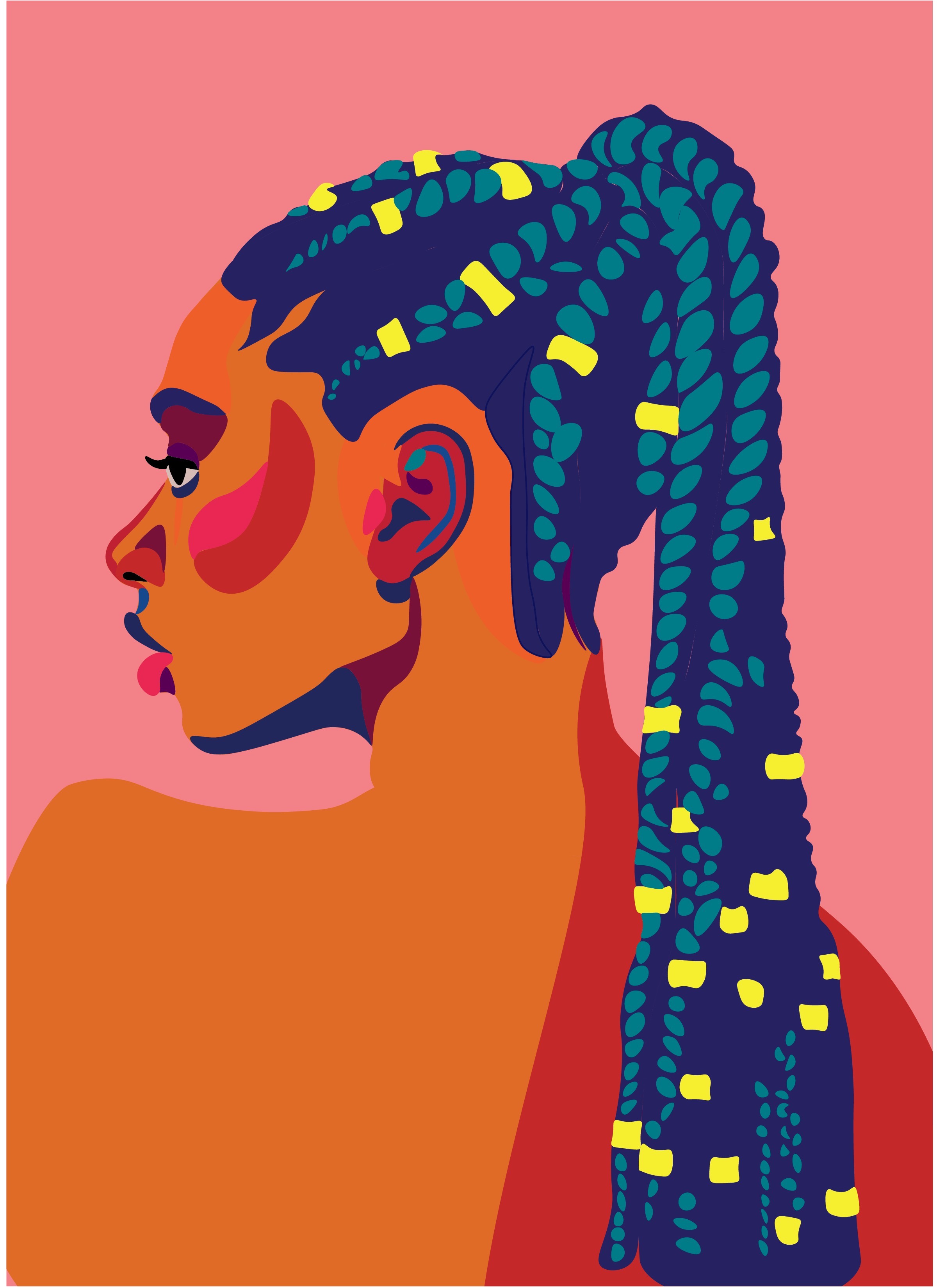
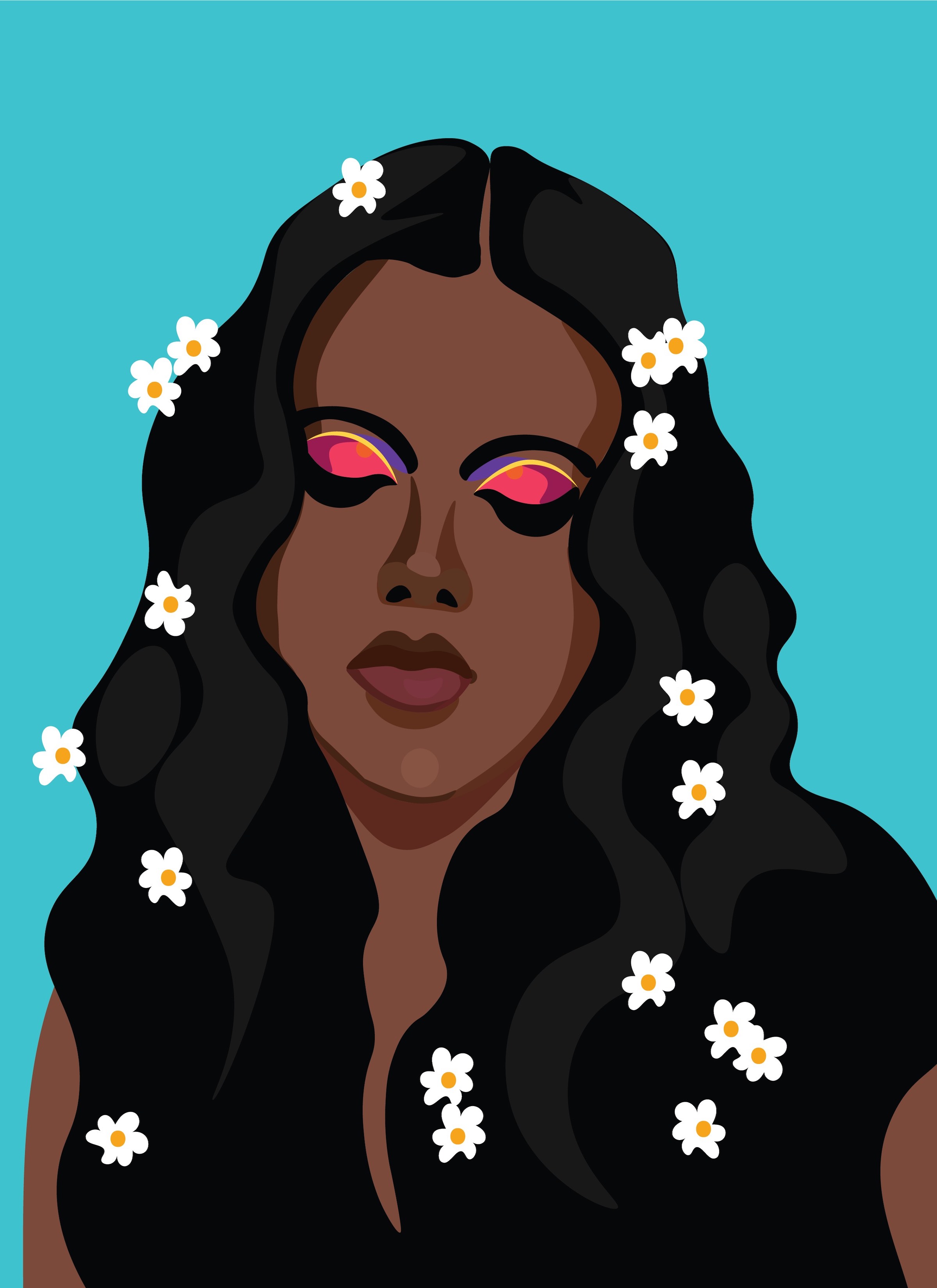
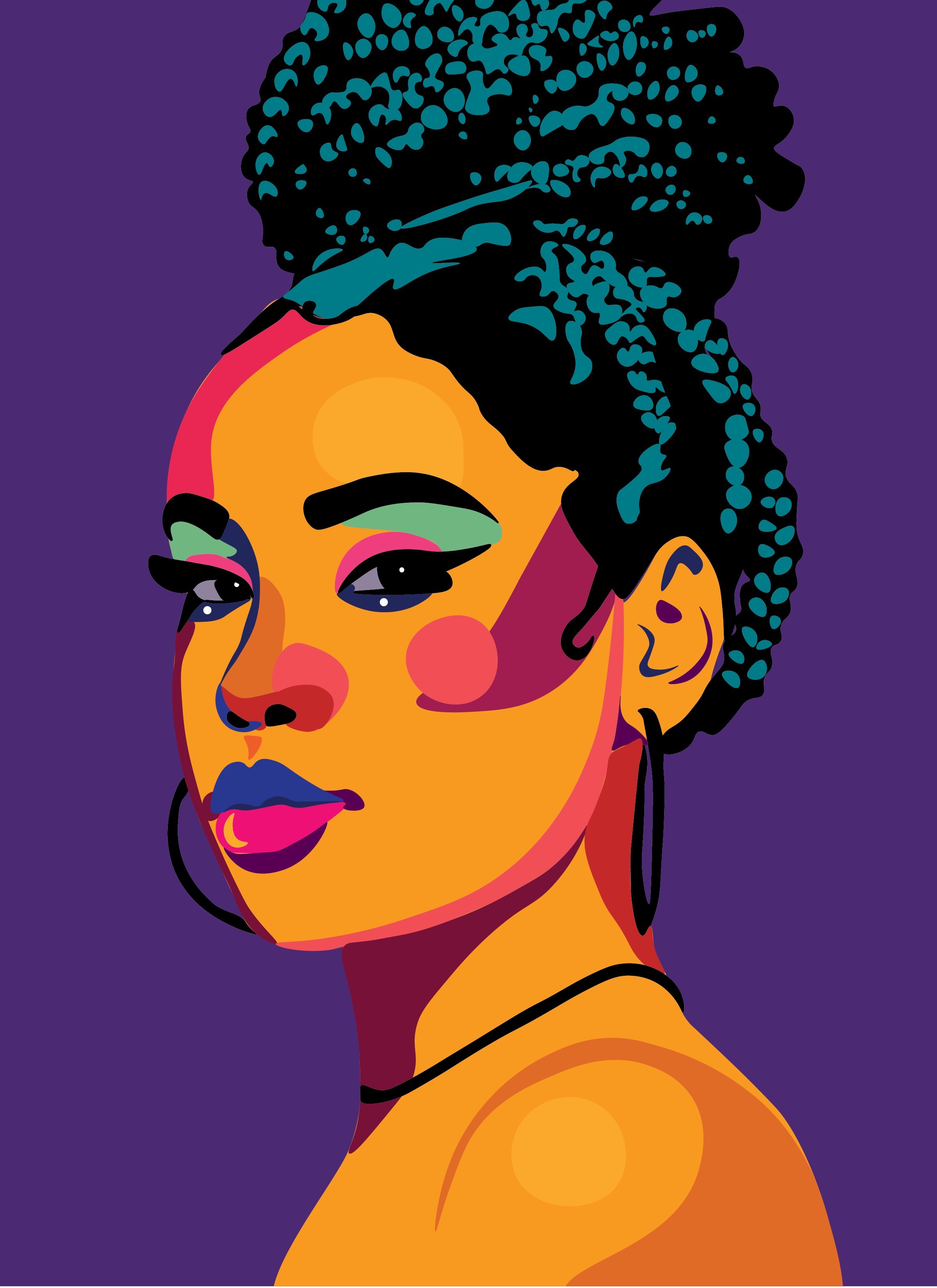
What have been your own experiences of having Black hair in the UK? Have you noticed change over time?
S: Sooo many bad memories! As an adult, I have to say it has not been as much of an issue for me. I work in the creative industry, so no one has ever told me my hair was not appropriate for the workplace. However, there’s the other side of things; unwanted attention, people I don’t know or did not ask to touch my hair in the street, in a queue of a supermarket or food truck stand. It happens more times than I can be bothered to count, and it’s infuriating. As a child, kids used to stick my hair up like a starfish because it didn’t fall back down in place. You either had to laugh or cry, and I chose to laugh because I refused to be more of a victim than I already was, being the only Black kid for miles in Portsmouth in the early 2000s, other than my sister. Things have changed slightly, but then you read stuff every day – including the things in this book – that remind you there is still so much further to go. Certain people are making waves, and I thank them, but it will take more than a village to undo years of systemic and institutionalised racism. It’s hard enough getting people to acknowledge it’s even happening sometimes.
Z: Personally, my experience has been very similar to many of the women we interviewed. I loved my hair as a child when I was surrounded only by my family, who all had the same hair as me. Then I started hating it when I was in late primary school because of the reactions and remarks from other girls. I then began chemically processing my hair, enduring breakage, an identity crisis, before finding my tribe in uni and feeling real love and acceptance outside of my home for the first time in my life. Then I started my loc journey.
This book specifically looks at the experiences of Black women and their hair. Do you think that Black males experience similar levels of judgement, discrimination and ‘otherness’?
S: I hate being asked this question because I can never quite articulate my point. They absolutely do, but it’s different. The pressures, in my opinion, aren’t the same and Black women sometimes experience the same judgment, discrimination, and otherness from Black men themselves. So yeah, it’s pretty messed up. I’m not disregarding their experience, but I think it’s two different chapters of the same book. Not including men in the book was done deliberately because, as a woman, I don’t think I can speak on the issues men face regarding beauty standards. That’s definitely a book that needs to be written but not by me.
Z: Black males absolutely experience similar levels of judgment and discrimination – but these don't often come from a hair and beauty angle because a man's value in society, Black or white, is usually not based on their appearance but what they can provide. So, while appearance may play a role in how Black men are perceived, it's generally a lesser role.
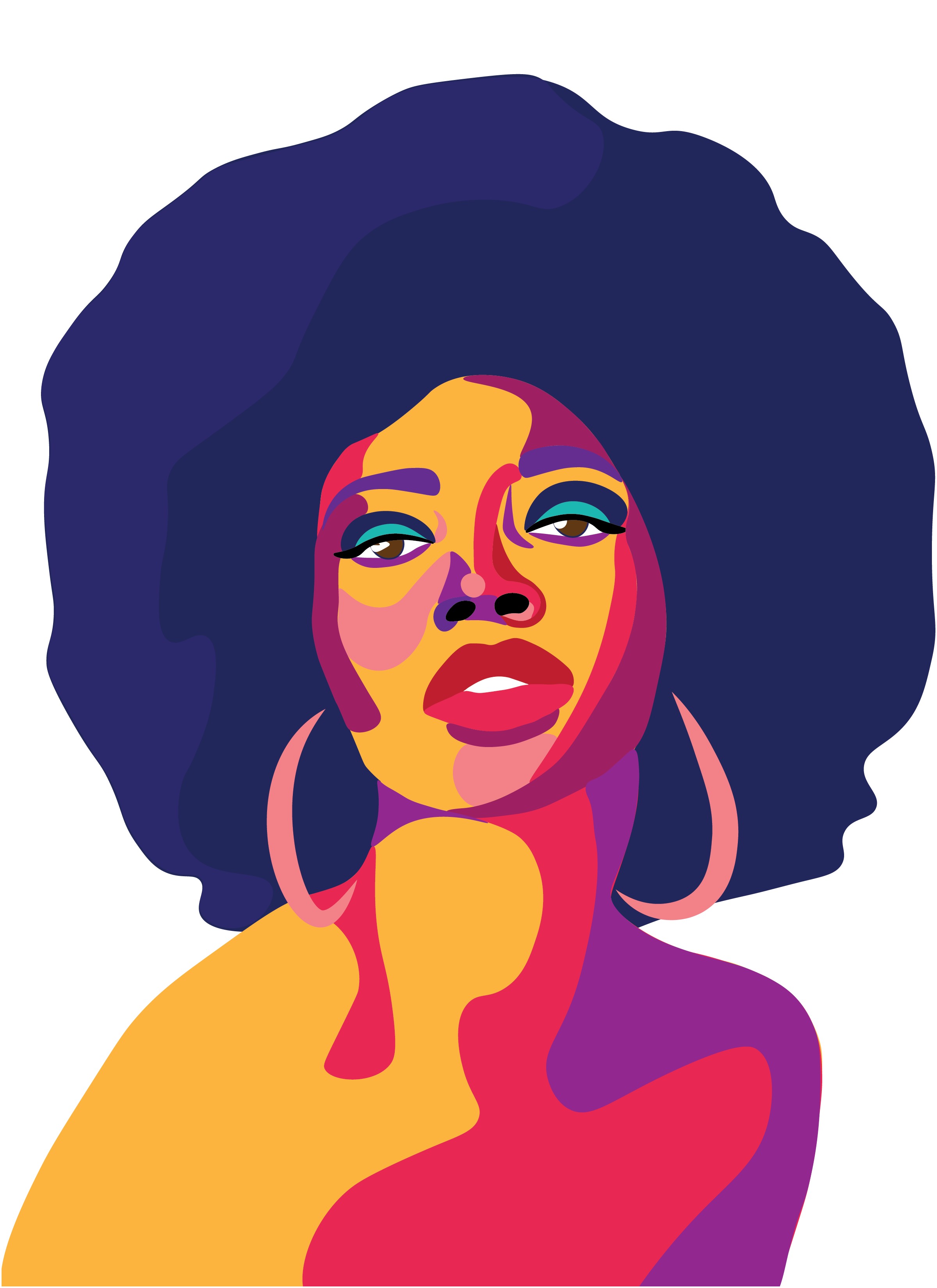 Is there something about the book-writing process you wish you knew about before you started?
Is there something about the book-writing process you wish you knew about before you started?
S: I think I speak for both of us here when I say it sounds simple, but the fact is that it’s not going to happen overnight. You think of fiction books and how long they take, and you’d assume a book of interviews would be easier in some ways, but it’s not – it’s really, really not. We are both so grateful to our mums who spent many months listening to us talk at them just so we can get our thoughts out. Also, learning that some people’s opinions aren’t going to reflect your own but it doesn’t make their point any less valid. That’s not something I wish I knew beforehand as much as it is something I learned afterwards.
Podcasts are becoming an increasingly popular way to explore a topic and tell unique stories. Was there ever a plan to do this as a podcast series – or plans to serialise it?
S: This was never something me and Zainab considered in this context, but it’s a good idea. We are far from being done with this book just because it’s now gone to print. This could be a really logical and rewarding next step. We are not ruling it out.
What’s next for you both?
S: Regarding Hairvolution, I am sure more interviews. We are doing a book signing/Q&A to promote the book on October 19 at Streatham Library as part of their Black History Month programme. Do come along; it’s going to be a good night. I’m also teaming up with Women of the World on October 11 for International Day of the Girl. I’m going to be mentoring young girls, talking about the book whilst on the London Eye. I don’t quite have all the details, but it’s an honour to be asked – I’m just glad I’m not scared of heights. Other than being bossed around by you, Tom, I guess I’m just going to do whatever I can to ensure as many people see this book as possible. I’m so proud of it.
Z: Honestly, who knows – but I don't think you've heard the last from us.
Where can people find the book?
The book is being sold on amazon.co.uk and our publisher’s website Aurora Metro. It’s in selected Waterstones stores, Blackwells, WHSmith, Foyles, even Target and Barnes and Noble in the USA, for any Americans reading this right now, so yeah, it’s pretty accessible.
And where can people find you?
S: You can find me on IG @sincerely_saskia, Twitter @sincerely_sas and all over Voice’s IG every Wednesday for my Instaviews segment. I also have a blog sincerelysaskia.com which is currently down but will be up and running again soon, so keep an eye on my social!
Z: @zainab.raghdo on IG, I don’t have Twitter but I do have a blog www.thecoffeebrk.com










Amazing to see and really inspirational read. I look forward to reading it!